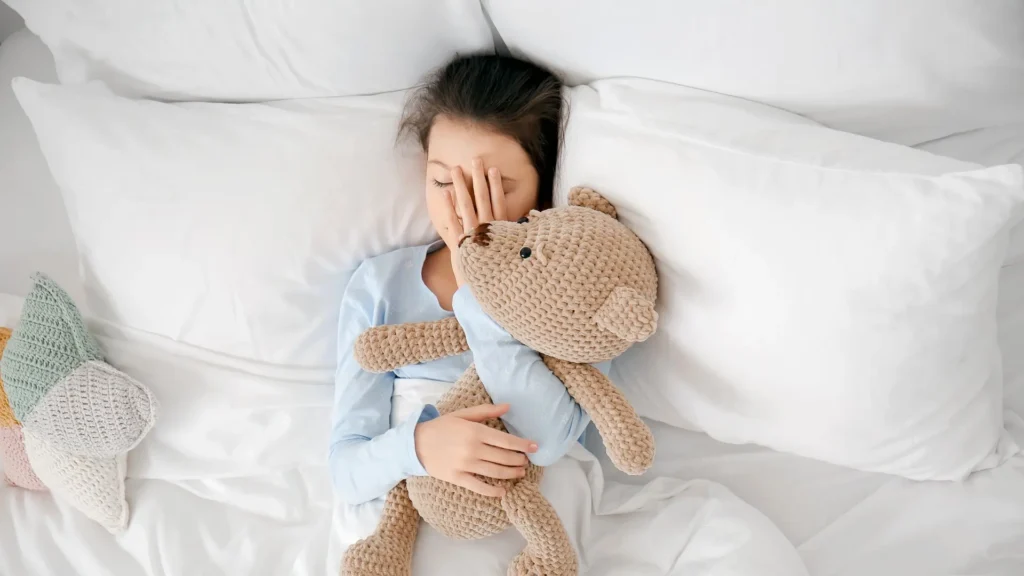Sleep disorders can have a significant impact on both mental and physical well-being, leading to problems such as memory issues, irritability, and even chronic conditions like heart disease. Today, we will delve into common sleep disorders, their effects, and the various treatment options available.
Understanding Common Sleep Disorders

1. Insomnia
Insomnia is one of the common sleep disorders characterized by difficulty falling asleep or staying asleep. There are two main types of insomnia:
- Acute insomnia: This type of insomnia is often short-term and can be triggered by factors such as stress or changes in sleep environment.
- Chronic insomnia: Unlike acute insomnia, chronic insomnia lasts for at least three months and may not have an obvious cause. It can be linked to medical conditions, mental health disorders, substance use, or genetic factors.
To effectively manage insomnia, a combination of approaches is usually recommended:
- Cognitive Behavioral Therapy for Insomnia (CBT-i): This therapy focuses on identifying and changing negative thoughts and behaviors that contribute to sleep problems.
- Sleep hygiene practices: Establishing a regular sleep schedule, creating a comfortable sleep environment, and avoiding stimulants like caffeine before bedtime can promote better sleep.
- Medication: In some cases, doctors may prescribe sleeping pills for short-term use to help with severe insomnia.
It’s important to understand the specific type of insomnia you’re experiencing and its underlying causes in order to develop a targeted treatment plan that addresses the root issues rather than just managing symptoms.
2. Narcolepsy
Narcolepsy is a chronic neurological disorder that affects the brain’s ability to control sleep-wake cycles. This condition leads to overwhelming daytime drowsiness and sudden attacks of sleep. People with narcolepsy may experience:
- Excessive daytime sleepiness (EDS): An irresistible need to sleep, no matter how much rest they get at night.
- Cataplexy: A sudden, brief loss of voluntary muscle tone triggered by strong emotions.
- Sleep paralysis: The temporary inability to move or speak while falling asleep or upon waking.
- Hallucinations: Vivid and often frightening visions occurring when falling asleep or waking up.
Diagnosing narcolepsy presents challenges due to these symptoms being common with other sleep disorders, particularly types of insomnia. It requires a thorough evaluation by a sleep specialist, including detailed patient history and specialized tests like polysomnography and multiple sleep latency tests.
For treatment options, there is no cure for narcolepsy, but medications and lifestyle changes can manage symptoms. Treatments may include:
- Stimulants: To combat excessive daytime sleepiness.
- Antidepressants: Some types help control cataplexy.
- Sodium oxybate: Approved for treating cataplexy and excessive daytime sleepiness in narcolepsy patients.
People with narcolepsy are also encouraged to maintain regular sleep schedules and take short, scheduled naps to minimize the impact on daily life.
3. Restless Legs Syndrome (RLS)
Restless Legs Syndrome (RLS) is a neurological sleep disorder characterized by an irresistible urge to move one’s legs, often accompanied by uncomfortable sensations. These symptoms tend to occur or worsen during periods of rest or inactivity, particularly in the evening or at night.
Research shows a strong connection between RLS and iron deficiency. Having low iron levels in the brain may reduce the impact of dopamine, a neurotransmitter that plays a crucial role in smooth muscle activity and movement.
Lifestyle Changes That May Help Relieve RLS Symptoms
Here are some lifestyle changes that may help alleviate RLS symptoms:
- Iron supplementation: If tests confirm low iron levels, adding more iron to your diet could help reduce symptoms.
- Regular exercise: Engaging in moderate physical activities can decrease RLS symptoms.
- Limit caffeine and alcohol: These substances can make RLS symptoms worse, so it’s best to consume them in moderation or avoid them altogether.
- Establish regular sleep patterns: Having consistent sleep schedules promotes better sleep quality and could potentially lessen RLS symptoms.
It’s important to note that RLS is a treatable condition. If you frequently experience discomfort or the urge to move your legs while resting, it’s crucial to seek advice from a healthcare professional.
4. Sleep Apnea
Sleep Apnea another one of the common sleep disorders characterized by breathing interruptions during sleep. There are two main types of sleep apnea:
- Obstructive Sleep Apnea (OSA): This occurs when throat muscles relax and block the airway.
- Central Sleep Apnea (CSA): This involves the brain failing to signal the muscles to breathe.
Both forms of sleep apnea can lead to health issues if left untreated, including heart disease and depression.
Treatment Options
Treatment for sleep apnea typically includes Continuous Positive Airway Pressure (CPAP) therapy. This involves using a machine that delivers a constant flow of air through a mask worn during sleep, keeping the airway open and ensuring uninterrupted breathing.
Importance of Seeking Help
It is important to seek professional help if you experience symptoms such as snoring or daytime fatigue. Getting an accurate diagnosis can help create effective treatment plans tailored to your individual needs.
Adopting a Comprehensive Approach: Etiology, Evaluation, and Management

1. Understanding the Causes of Common Sleep Disorders
Understanding the root causes of common sleep disorders plays a crucial role in addressing them effectively. Here are some key factors that can contribute to the development of sleep disorders:
- Medical conditions: Conditions such as obesity and diabetes can significantly influence sleep quality. Obesity contributes to sleep apnea due to excess weight around the neck obstructing the airway during sleep. On the other hand, irregular blood sugar levels in diabetes can lead to frequent urination at night, disrupting normal sleep patterns.
- Genetic factors: Certain sleep disorders like narcolepsy and Restless Legs Syndrome have been found to have a genetic component. Having a family history of these conditions often increases an individual’s risk.
- Medications: Some medications can interfere with normal sleep patterns. Side effects from antidepressants or beta blockers, for example, may cause insomnia or disturbed sleep.
- Substance use: The use of substances such as alcohol, caffeine, or nicotine can disrupt sleep. While alcohol may initially induce drowsiness, it often leads to fragmented and non-restorative sleep. Stimulants like caffeine can prevent the onset of sleep by increasing alertness.
- Unhealthy lifestyle practices: Practices such as irregular bedtime schedules, excessive screen time before bed, and poor diet can contribute to the development of sleep disorders.
- Environmental factors: Factors such as noise levels and room temperature can also play a significant role in ensuring quality rest.
By acknowledging these varied influences on our sleep health, we can start building strategies to address them effectively. The subsequent sections will delve into evaluation methods for identifying specific disorders and various management approaches that encompass both medical interventions and lifestyle modifications.
2. Seeking Proper Evaluation
If you’re dealing with ongoing sleep problems, it’s important to seek professional medical advice instead of trying to diagnose yourself. There might be underlying factors that you’re not aware of, and healthcare professionals are trained to identify them.
They can conduct a comprehensive evaluation to determine the root causes of your sleep issues, which often involve a combination of medical conditions, genetics, lifestyle choices, and environmental factors.
This information is crucial in developing personalized treatment plans that target your specific symptoms and underlying issues.
During the evaluation process, several diagnostic tests may be used:
- Healthcare Provider Review: A detailed conversation about your sleep patterns, medical history, and daily habits.
- Sleep Diaries and Monitoring Devices: These tools can help you keep track of your sleeping patterns over time and identify any consistent issues or irregularities.
- Polysomnography: This specialized test involves monitoring various bodily functions while you sleep to diagnose disorders such as sleep apnea, narcolepsy, and restless legs syndrome.
Getting an accurate diagnosis is the first step towards finding effective ways to manage your sleep problems based on your individual needs.
3. Comprehensive Management Approaches
Common Sleep disorders are complex, often influenced by a mix of factors including medical conditions like obesity and diabetes, genetic predispositions, medication side effects, substance use, and lifestyle habits. Effective management options must be tailored to each individual’s unique situation.
Here are some comprehensive management approaches for sleep disorders:
- Good Sleep Hygiene: Creating an environment conducive to sleep is crucial. This includes maintaining a regular sleep schedule, ensuring the bedroom is quiet, dark, and cool, and avoiding screens before bedtime.
- Behavioral Techniques: Strategies such as relaxation exercises can help in reducing stress and promoting better sleep.
- Cognitive Behavioral Therapy for Insomnia (CBT-i): This specialized therapy addresses the psychological factors connected to insomnia. By challenging and changing unhelpful thoughts and behaviors around sleep, CBT-i has proven effective for many individuals.
Healthcare professionals play a crucial role in evaluating sleep disorders through comprehensive assessments. They gather information from personal history, physical exams, and diagnostic tests to develop personalized treatment plans.
Medical Interventions and Procedures
When it comes to understanding the causes of common sleep disorders, healthcare professionals need to customize treatment options based on individual needs. This is because factors like medical conditions, obesity, diabetes, genetic influences, medication side effects, substance use, and lifestyle habits can all contribute to the problem.
Pharmacological Treatment Options:
- Medications: Sleep disorders often require specific medicines. Benzodiazepines may aid in managing insomnia while stimulant medications can help with narcolepsy.
- Supplements: Melatonin supplements might help regulate sleep cycles, especially for those with circadian rhythm disruptions.
Advanced Interventions:
- CPAP Therapy: For sleep apnea sufferers, CPAP machines are a mainstay treatment that keep airways open during sleep.
- Neurostimulator Implantation: Used in severe cases of sleep apnea where CPAP therapy is unsuitable or ineffective.
Regulating Circadian Rhythms:
- Light Therapy: Exposure to bright light can help adjust the internal clock, beneficial for conditions like Delayed Sleep Phase Syndrome.
Each treatment option should be carefully assessed by a healthcare professional through a comprehensive examination to ensure the best outcome for the patient.
Taking a Holistic Approach: The Role of Lifestyle Factors and Coordinated Care

Healthy Lifestyle Habits for Better Sleep
Sleep quality is not only influenced by medical interventions but also significantly by everyday lifestyle choices. Recognizing the profound effect of diet and exercise on sleep, adopting healthier habits becomes essential.
Dietary Considerations
- Limiting caffeine and alcohol: Both substances can disrupt natural sleep cycles, so reducing intake, especially in the hours before bedtime, is beneficial.
- Balanced meals: Meals with an appropriate balance of proteins, fats, and carbohydrates can aid in more restful sleep. Heavy or rich foods close to bedtime may lead to discomfort and restlessness.
- Timing of meals: Eating earlier in the evening allows for better digestion and can prevent sleep disturbances caused by indigestion.
Exercise Routines
- Regular physical activity: Engaging in moderate exercise on a regular basis helps to promote a more consistent sleep-wake cycle.
- Relaxing exercises before bed: Gentle activities such as yoga or stretching can help prepare the body for sleep.
- Avoiding strenuous workouts close to bedtime: Intense physical activity may boost energy levels temporarily, making it harder to fall asleep.
By integrating these dietary and exercise considerations into daily routines, individuals can foster improved sleep patterns. This holistic view complements medical treatments and underscores the importance of an interprofessional approach to managing sleep disorders.
Coordinating care between dietitians, fitness experts, and healthcare providers ensures that every aspect of a patient’s lifestyle supports optimal sleep health.
2. Coordinating with Different Specialties
An interprofessional approach is key to managing common sleep disorders effectively. Coordination between various healthcare providers ensures patients receive comprehensive care. Sleep medicine specialists can guide the overall treatment plan while psychologists, psychiatrists, and therapists contribute to addressing the psychological aspects. Collaboration is essential:
- Sleep Medicine Specialists: They assess and treat physical aspects of sleep disorders, often recommending changes in sleep environment or medical interventions.
- Psychologists and Psychiatrists: These professionals explore potential mental health issues that could affect sleep patterns, such as anxiety or depression.
- Therapists: Offer coping strategies and behavioral modification techniques to improve sleep hygiene.
The team effort emphasizes dietary considerations and tailored exercise routines, acknowledging the profound impact of lifestyle on healthy sleep patterns.
3. Addressing Underlying Medical Conditions
Sleep quality can be greatly affected by various medical conditions known as comorbidities. For individuals with sleep disorders, it’s critical to treat these concurrent medical issues to improve sleep outcomes. This includes:
- Interprofessional Approach: Engaging an integrated team of healthcare providers to address the multifaceted nature of sleep disorders.
- Coordinating Care: Ensuring that all healthcare professionals involved are communicating effectively about the individual’s care plan.
- Dietary Considerations: Assessing and adjusting diet to support better sleep patterns and overall health.
- Exercise Routines: Incorporating appropriate physical activity that aligns with the individual’s health status and contributes to better sleep.
- Lifestyle Choices: Recognizing how daily habits impact sleep quality and making necessary adjustments.
By focusing on these areas, healthcare providers can collaborate to provide a comprehensive treatment plan that supports healthy sleep for their patients.
Conclusion
Common Sleep disorders is a pressing concern for many and can significantly affect physical and mental health. Identifying and addressing these issues is critical for overall well-being. The journey to better sleep might seem daunting, but remember, you’re not alone in this.
Through knowledge, awareness, and appropriate treatment strategies, a restful night’s sleep is achievable.
As always, please consult with a healthcare professional for a more accurate diagnosis.
FAQs (Frequently Asked Questions)
What are the different types of insomnia and their underlying causes?
Insomnia can be classified into acute and chronic types, with acute insomnia often being triggered by stressful events or changes in the sleep environment, while chronic insomnia is typically associated with underlying medical or psychological conditions such as depression, anxiety, or chronic pain.
How can insomnia symptoms be managed?
Insomnia symptoms can be managed through a combination of medical and non-medical approaches. Medical approaches may involve the use of prescription medications, while non-medical approaches may include cognitive behavioral therapy for insomnia (CBT-i), relaxation techniques, and adopting good sleep hygiene practices.
What are the challenges in diagnosing narcolepsy and what treatment options are available?
Narcolepsy presents challenges in diagnosis due to its varied symptoms and potential overlap with other sleep disorders. Treatment options may include stimulant medications to manage excessive daytime sleepiness, antidepressants to address symptoms of cataplexy, and lifestyle modifications to improve sleep quality.
How is restless legs syndrome (RLS) linked to iron deficiency, and what lifestyle interventions can alleviate symptoms?
Restless legs syndrome (RLS) has been associated with iron deficiency. Lifestyle interventions such as regular exercise, maintaining a balanced diet rich in iron, and avoiding caffeine and alcohol close to bedtime can help alleviate RLS symptoms.
What is the role of continuous positive airway pressure (CPAP) therapy in managing sleep apnea?
Continuous positive airway pressure (CPAP) therapy is commonly used to treat obstructive sleep apnea by delivering a constant flow of air through a mask to keep the airways open during sleep. It is an effective non-invasive treatment option for many individuals with sleep apnea.
How do genetics, medication side effects, and substance use contribute to the development of sleep disorders?
Genetics can influence one’s susceptibility to certain sleep disorders. Medication side effects, particularly from medications that affect the central nervous system, can disrupt normal sleep patterns. Substance use, including alcohol and stimulants, can also lead to disturbances in sleep.



